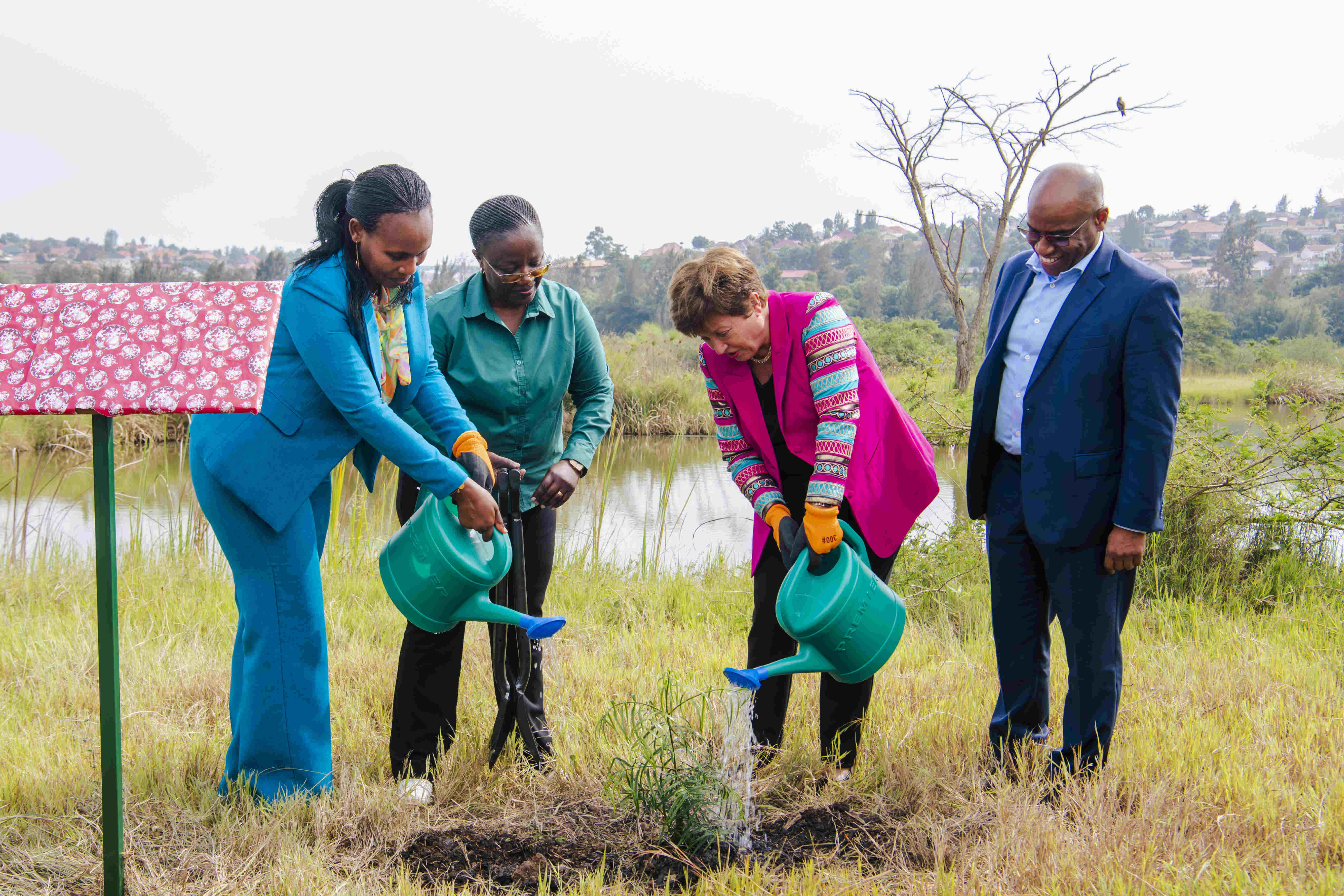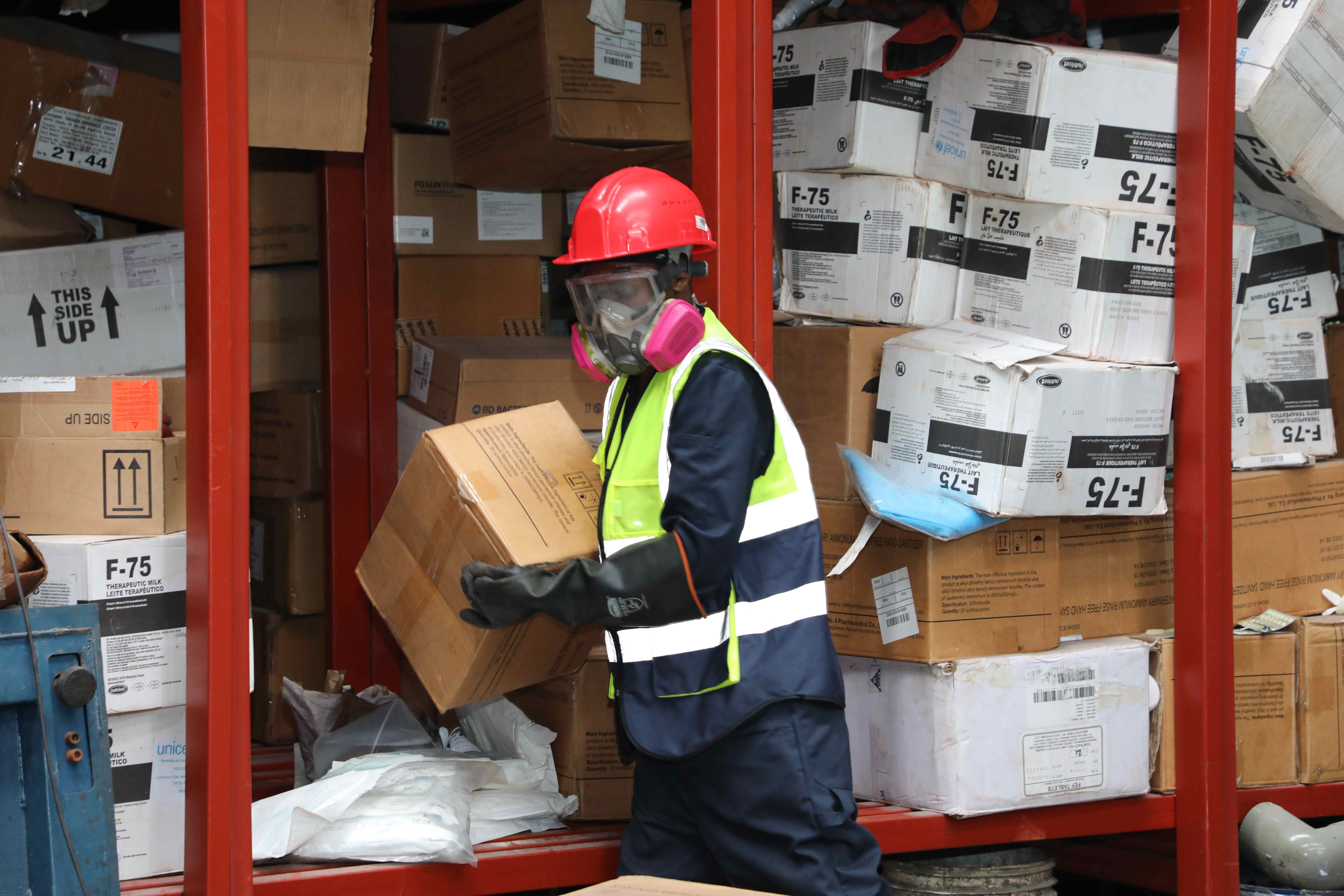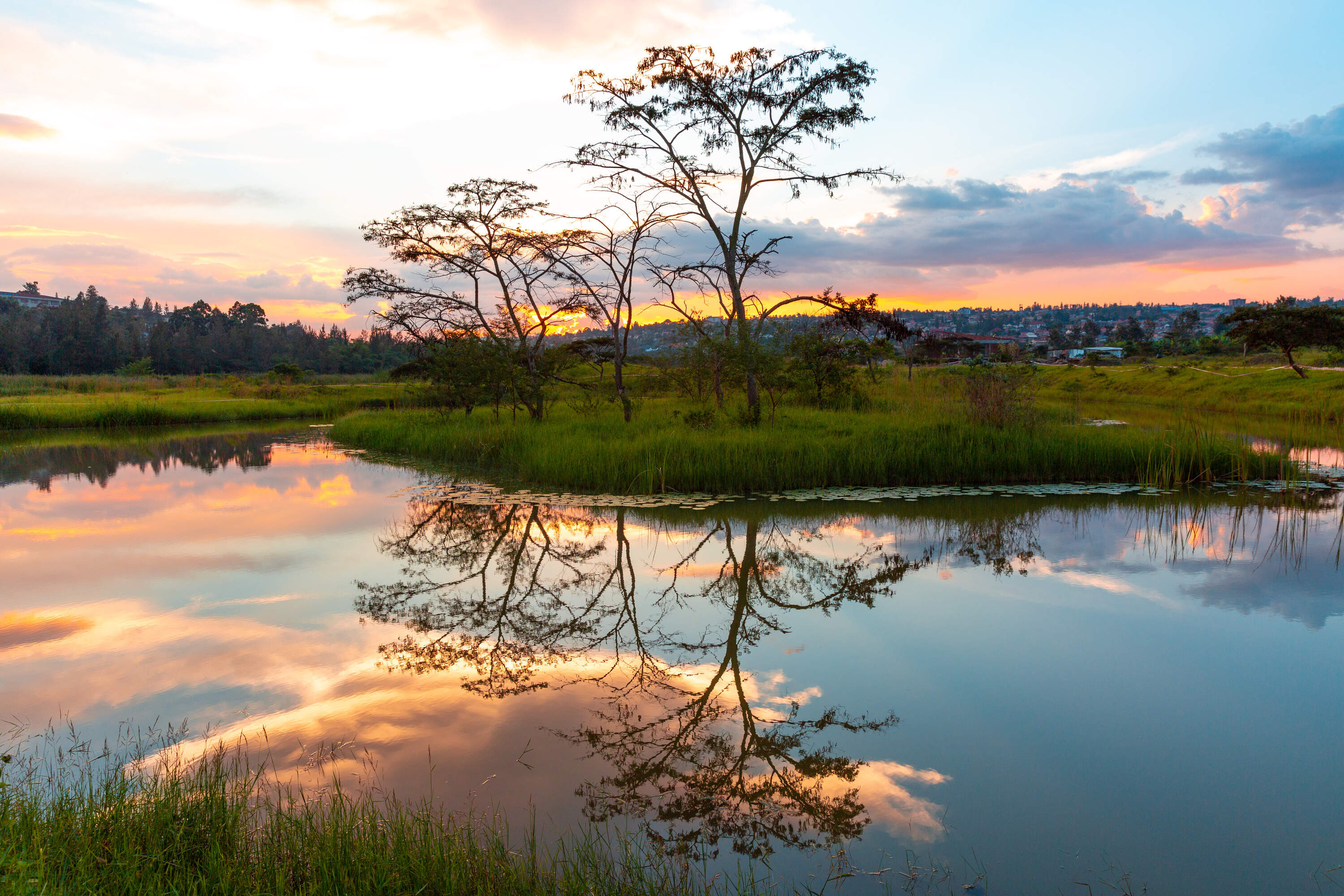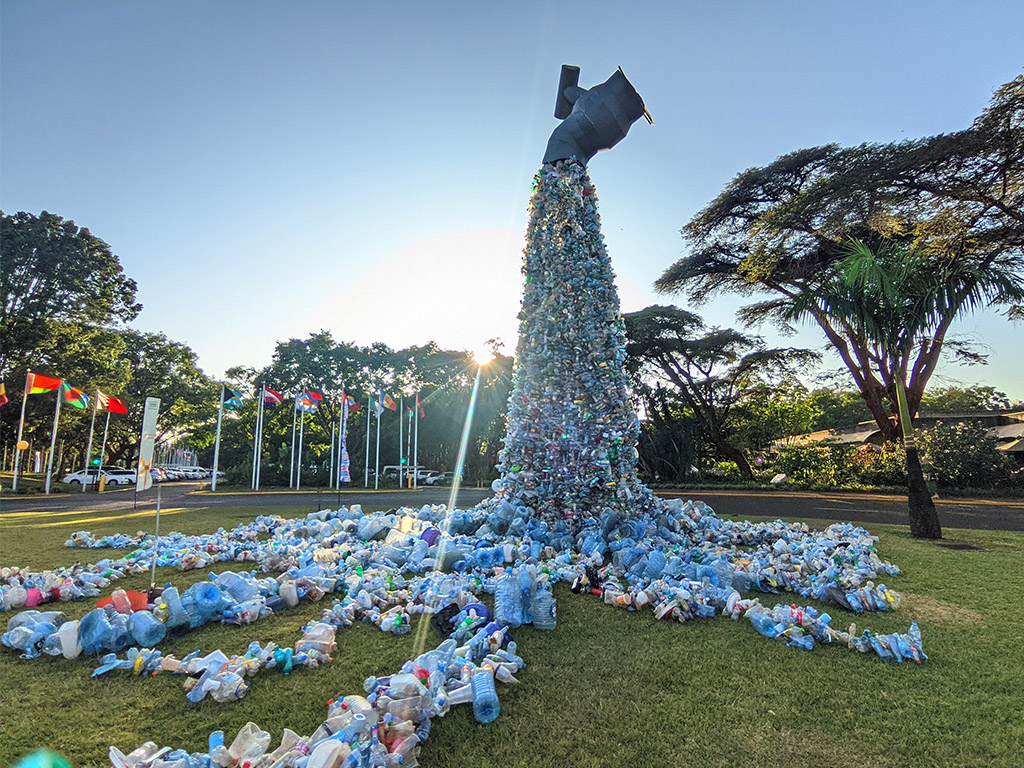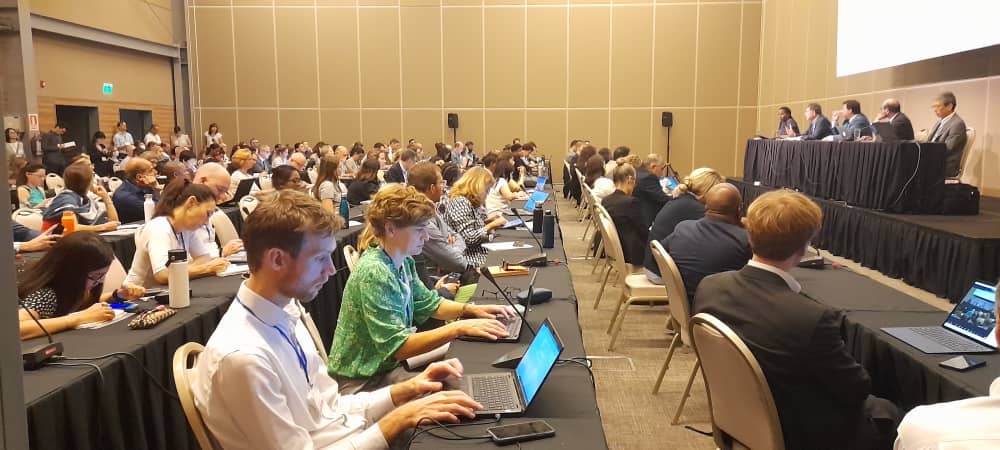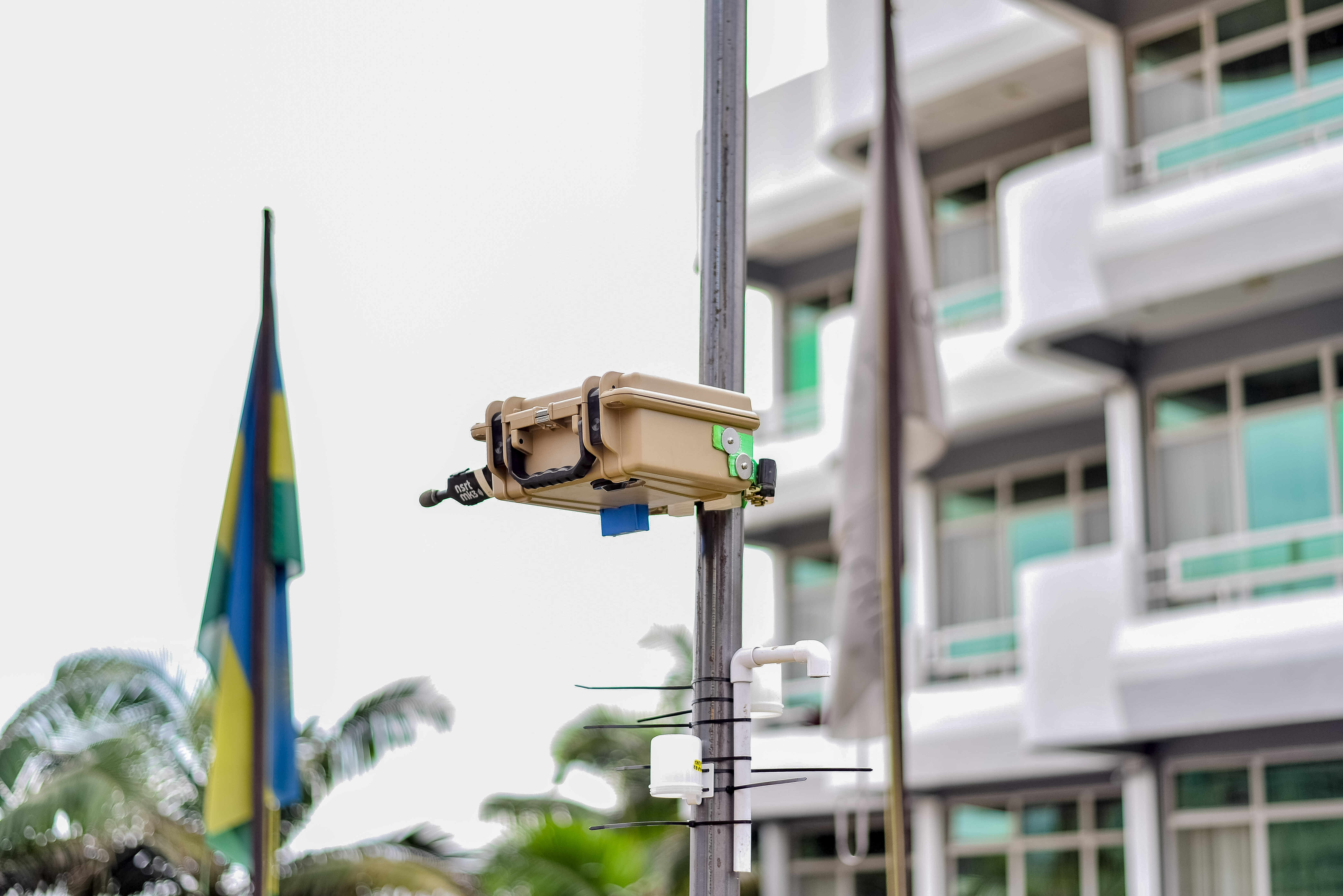
Districts are encouraged to press ahead with the implementation of the ‘green economy’ plans – Report on Climate Change Vulnerability Assessment
Kigali, 26 June, 2019 – The Rwanda Environment Management Authority (REMA) has disseminated the findings of the 2018 Climate Change Vulnerability Assessment Report. Findings were presented to different stakeholders and discuss the best ways to put into practice recommended policy and strategic actions.
The 2018 climate change vulnerability assessment aimed at tracking changes and update data for the national climate change vulnerability indicators for 2015 and 2018; assessing and providing a household based index of climate change vulnerability at district and province levels and providing updated policy and strategy recommendations to address any identified vulnerabilities as necessary.
Global changes in climate are affecting Rwanda in many complex ways. These include climate related hazards such as floods, landslides and droughts as well as windstorms and severe rainstorms that have struck Rwanda in recent years with devastating effects on the population. These hazards have affected all districts and individual households across the nation – affecting the livelihoods and food security of rural and urban populations as well as the agricultural, energy, health, water, natural resource and institutional systems on which the population depends.
According to this report, findings reveal that Southern Province as the most vulnerableamong the four provinces and the City of Kigali. It also finds Huye District, in Southern Province, as the most vulnerable among the 30 districts. Four districts are assessed as having the highest vulnerability in the country – 3 of them located in Southern Province: Gisagara, Huye and Ruhango Districts together with Karongi District in Western Province.
Furthermore, the report identifies Northern Province as having the lowest vulnerabilityamong the four provinces and the City of Kigali. Gasabo District is identified as having the lowest vulnerability among the 30 districts. A total of 11 districts fall into the category of low vulnerability: 3 districts in City of Kigali, 1 district in Southern Province, all 5 districts in Northern Province and two districts in Eastern Province. The remaining 15 districts have mediumvulnerability.
Alphonse Mutabazi, Climate Change Program Manager at REMA said:
The capacity and scale of adaptation to climate change depends on the vulnerability of people and natural systems to the impacts where vulnerability is susceptibility shaped by exposure, sensitivity and resilience".
He added:
"In relation to climate change, vulnerability relates to direct effects such as more storms, floods, hot weather, lower or higher rainfall that lead to indirect effects such as lower productivity from changing ecosystems or disruption to economic system". Said Mutabazi:
Districts are encouraged to press ahead with the implementation of the ‘green economy’ plans within their District Development Strategies (DDS). Where possible districts should review their development strategies and planned projects and ensure their plans are informed by this report’s assessment of their climate vulnerabilities, and by future climate scenario.
Read the full report:
https://rema.gov.rw/cc_vulnerability_Rwanda(2018)-Final_report.pdf
Topics
More posts
Rwandans Urged to halt wetlands degradation and contribute to wetlands restoration
Kigali, February 02,2023- Rwanda joins the rest of the world to commemorate World Wetlands Day (WWD) usually celebrated every year with the ultimate…
IMF Managing Director commends Rwanda’s commitment to fighting climate change
The Managing Director of the International Monetary Fund (IMF), Kristalina Georgieva commends Rwanda’s commitment to fighting climate change and being…
Rwanda Environment Management Authority and AKADEMIYA2063 Launched Partnership to Support Climate Mitigation and Adaptation
Kigali, January 11, 2022 – In view of implementing the African Union Commission (AUC) resolution to support African Union (AU) member states to comply…
The new Global Biodiversity Framework with an ambitious plan to protect and restore nature
Montreal, Canada, 22 December 2022 - The “Kunming-Montreal Global Biodiversity Framework” (GBF) adopted at the 15th meeting of the Conference of…
Rwanda launches a five-year initiative to improve hazardous waste management
The Rwanda Environment Management Authority (REMA) and the United Nations Development Programme (UNDP) have today launched a five-year project to…
Rwanda calls on the world to put nature first and agree on an ambitious Global Biodiversity Framework
Rwanda is calling on nations of the world to join hands and agree on an ambitious Global Biodiversity Framework at this UN Biodiversity Conference…
Rwanda and Norway to host a "Roadmap to end plastic pollution by 2024" event at WCEF2022
Rwanda and Norway through the Rwanda Environment Management Authority (REMA) are organising a "Road map to end plastic pollution by 2040" side event…
Negotiations on global treaty to end plastic pollution begin in Uruguay
Rwanda will join nations from around the world in Uruguay to begin drafting a global treaty to end plastic pollution with the first session of the…
AIMS and REMA launch Kigali City Framework for Noise and Air Quality Monitoring Campaign
The African Institute for Mathematical Sciences (AIMS), in partnership with Rwanda Environment Management Authority (REMA), have today launched the…
